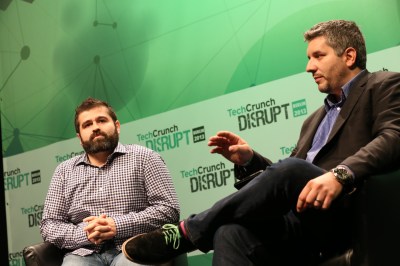
Indiegogo co-founder and CEO Slava Rubin took the stage today at TechCrunch Disrupt Europe 2013, and he shared some interesting stats about the crowdfunding platform’s progress to date, and he specifically addressed some of the company’s international growth. Over the past year, Indiegogo has managed to expand its business 300 percent in Europe over the past year, and international funding now accounts for a full 30 percent of its platform activity.
A lot of the hard work about that came around adding new languages, Rubin said, and then it was also challenging because of the various currencies that had to be incorporated into the platform. Most of the heavy lifting is around working out how to take and receive payments in different countries, Rubin said, and adding a number of new international capabilities in that regard has really helped speed up their growth.
The international growth is actually a core part of Indiegogo’s vision, for an open and democratized future of funding.
“It’s really simple, we want to democratize funding across the world, the only way to do that is to be open,” Rubin said. “To be open is hard [...] The only way to create an open platform is to be totally global, if you only focus on one vertical or one country, you’re only creating liquidity in that space.”
It’s hard because you need to reach as many people as possible, you need to build a product that’s both open to all submissions but also reliable and consistent, and because you have to defend against fraud, which is hugely complicated when you’re trying to be open.
Yet defend against fraud is exactly what Indiegogo has done. The crowdfunding company has faced numerous fraud attempts since 2008, but Rubin says that they’ve had “virtually zero” actually carried out successful. Its net of anti-fraud detection, which includes community monitoring, advanced fraud detection algorithms, and people to track down and follow-up with flagged incidents, is so far pretty bulletproof, Rubin says.
As to what this means in terms of actually delivering funding to project creators, Rubin says that there’s now “millions” being distributed to between 70 and 100 different countries per week. Indiegogo may have strong competition in the form of Kickstarter, but it’s clearly focus on growing internationally quickly and covering as much ground as possible while Kickstarter moves a little more slowly on reaching new countries.
Tags: Colleen Ritzer bart Heartbreaker Justin Bieber Dusty Baker drew brees
No comments:
Post a Comment
Note: Only a member of this blog may post a comment.